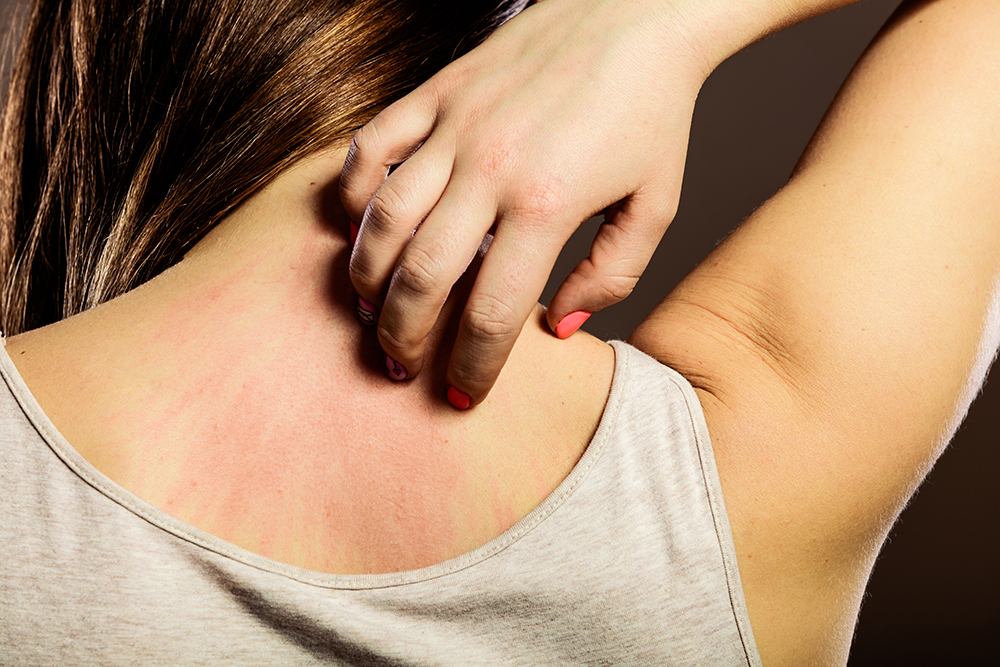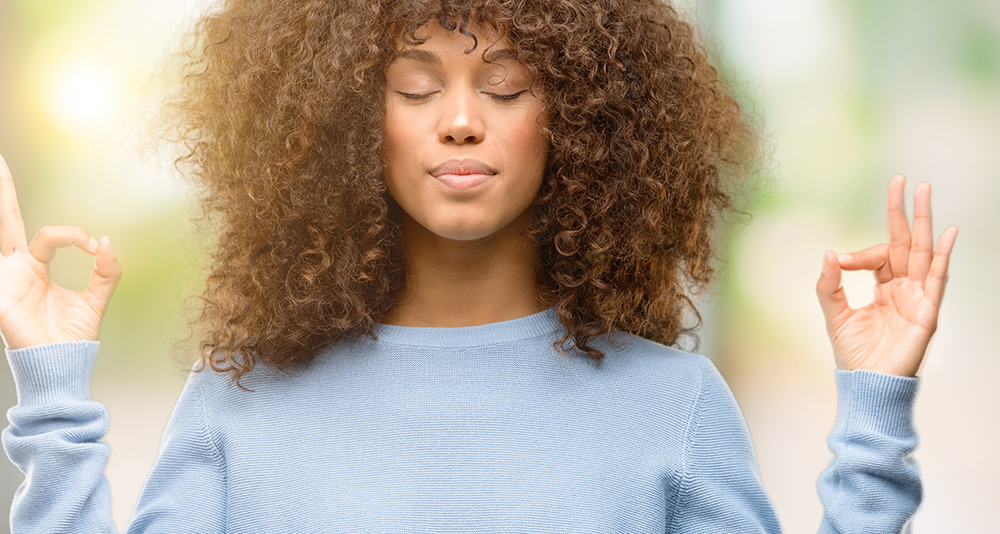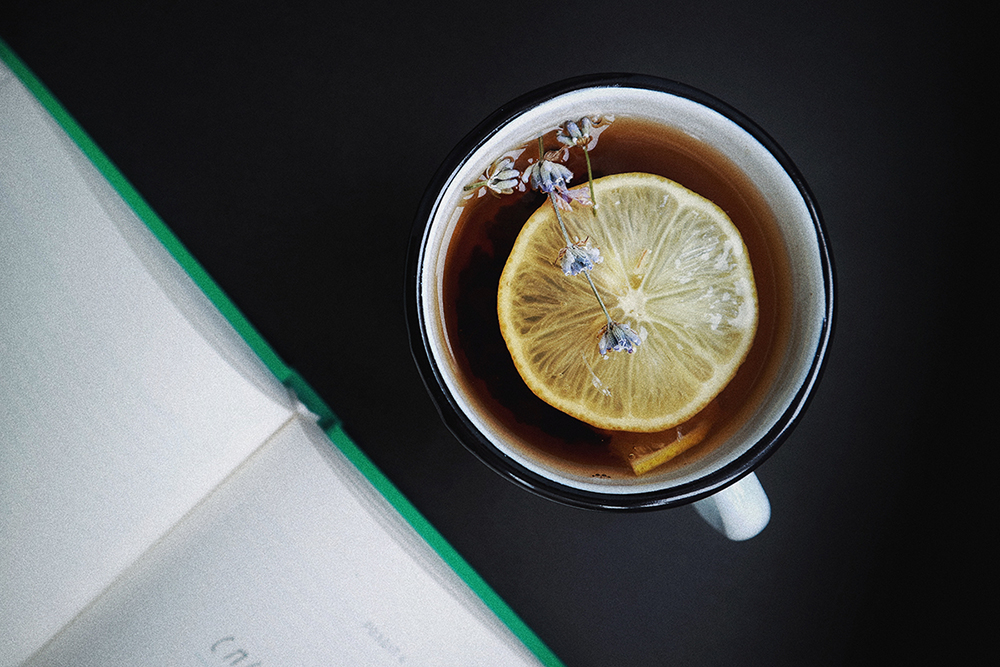Stress was already a major problem in modern life, and with the upheavals we've all experienced recently it's higher than ever. It doesn't feel good, and it turns out it's not good for us either. That means if we want to maintain our health we need to get the better of stress before it gets the better of us.
You may know some of the physiological effects of stress. One is increased heart rate and blood pressure. Many people are living life with both of these much higher than normal levels on a constant basis. Another part of the stress response is the release of a myriad of hormones including a steroid class called glucocorticoids.
The steroid type compounds released during the stress response have a function in activating and shutting down various activities in the immune system so that the body theoretically has the right white blood cells available to defend against potential infections.
There are many things that can make us susceptible to infection by viruses and bacteria. Stress has been getting some attention in recent years as a cause of chronic illnesses as well as the average cold. All of us are affected by stress in some way. How we manage it can help stave off the sniffles or something much more serious. Immune health is always important, but it's getting extra attention now.
The Garvan Institute in Australia was responsible for correlating a key stress hormone called neuropeptide Y (NPY), and its interference with immune response. Neuropeptide Y is a hormone that is released from neurones when the body is under stress. Neuropeptide Y is also involved with the activation of immune cells that are our first line of defense against pathogens. The immune cells activate the lymph nodes, where the body's response to the pathogen is determined. If NPY is being emitted on a chronic and regular basis it deactivates the second phase of the immune response that would actually eliminate the invaders. The immune system has a cycle that must be followed and reset. That reset is not possible if the initial hormones remain elevated.
Sheldon Cohen, a psychologist for Carnegie Mellon University has been able to correlate stress with the onset of depression and worsening of cardiovascular disease. His research encompassed 2 facets of why stress impacts health: behavioral, and hormonal. The behavioral aspect has to do with the fact that stressed people often do not take proper care of their bodies - indulging in greater excesses of drinking, food, and smoking and not sleeping or exercising properly. The hormonal aspect is exactly what the Garvin Institute was concerned with.
When your body is under stress and releases a cascade of glucocorticoid compounds your immune system is not the only thing affected. The skin is actually one of the main organs that interacts with all the chemical messengers of your stress response.
Research done by Dr. Peter Elias of the University of San Francisco indicates that glucocorticoids released from chronic stress decrease the skin's permeability barrier, which is what keeps needed skin components in and the exterior world out. They also increase inflammation in the under layers of tissue. What is the long term effect of this? Acne in some and eczema and dermatitis in others, depending on to which conditions your individual body is most susceptible.

With the permeability function of the skin compromised the acne bacteria have a much easier time replicating. Add to that increased sweating due to the stress response, and pores that may already be blocked or partially obscured become an immediate site for trouble. People who deal with eczema and psoriasis may notice increased skin sensitivity and fresh flares because of a compromised skin barrier.
So if you've found that lately your skin has a few fresh pimples, or it's red and rashy you can likely blame it on stress. But even in social isolation we still want our skin to behave nicely, and skin disruptions could be pointing at a much bigger issue. If you are constantly stressed your immune system is not going to be performing its best, so it's crucial you find ways to manage your stress.
While using good quality skincare can go a long way to helping calm skin the best results will come from tackling this issue in a holistic way. Dr. Elias found in his study with mice that changing their physical environment helped alleviate the stress. The alternative was to administer tranquilizers, which calmed the stress and the skin's aggravated responses.
While you may not be able to avail yourself of either of these alternatives there are some really great things you CAN do to take control of your stress level and get stress breakouts and flares under control. Your overall immunity will also benefit greatly, and that's something we all want.
What you can do to bust stress, improve immunity, and clear up your skin

Change your physical response to your environment.
Stretching and deep breathing are tremendous tools. Even 15 to 30 minutes of yoga combined with yogic breathing can lower blood pressure, stimulate circulation, and flush toxins from the body. This can short circuit the stress response and keep the flareup from getting worse. Take yoga and Chi Gong breaks in the afternoon to help work out the kinks from sitting at my computer all day. Even the simplest poses can help release tension and settle your mind as long as you really put yourself into the activity. Chi Gong is one type of exercise that is particularly gentle, suitable for any fitness level, and can be done even standing in your kitchen.
Many teachers are currently offering free or donation based video classes, so jump on those whenever you can. This is a great time to develop a healthy habit with a new style of movement.
Drink herbal tea to help with your stress level.

Giving your body a break from a constant intake of coffee is a big thing you can do to rest your adrenal glands, which are probably overworked right now. Teas are easy to prepare, and they offer loads of phytonutrients that can help balance your body. A warm cup of tea is a sensory treat as well, and even the process of brewing the tea can be a much needed break in your day. Treat it like a tea ceremony and use your best china to savor each sip. You can even have video chat tea dates with friends. Pinkies up!
Chamomile is, of course, the standby for calming especially at nighttime. Another herb that would be helpful in your teas is rhodiola. It is an adaptogenic herb and helps the body adjust to periods of stress. Additionally it will not make you sleepy and has actually been shown to increase cognitive function, an added benefit for busy people. Holy basil teas are often frequently used to balance stress, and a blend of holy basil and rose is delicious and refreshing to the palate.
Take more potent relaxing herbs such as Passionflower, Valerian, and Ashwagandha.
These may be best taken as a capsule. (Valerian is pretty stinky in its raw herb form) Valerian is a sedative and helpful for restful sleep, as is passionflower. Ashwagandha is an amazing herb that offers an incredible combination of benefits that include reduced anxiety, more balanced energy, easier sleep, and a boost to your immune system! It's an ideal herb for times like this. If you have questions about how these herbs might work with your current medications we recommend checking in with a holistically inclined health professional to talk about your individual situation as some herbs do have contraindications. These would be safe for many people though, and are very effective at what they do.
Aromatherapy is a great, noninvasive way to combat stress.
A bath filled with an herb tea and 20 or so drops of essential oil can really help change your mood, and is also very good for your skin. Soaking helps moderate blood pressure and many essential oils like lavender, clary sage, and atlas cedarwood offer relaxing benefits to the body as well as a pleasing aroma. Make sure you breathe deeply and fully while you are soaking to allow your body to fully unwind.
Give yourself a facial massage.
Even if you can't get to the masseuse for the next few months you can treat yourself to a relaxing facial massage. Just make sure your hands and face are very clean before starting. There are 43 muscles just in your face and they can all get tight. Perhaps you have been clenching your jaw unconsciously, or knitting your brows? Our facial expressions have a lot to do with our mood, and by deliberately relaxing the facial muscles you can actually improve your overall mood. The nerves in the face communicate directly with your brain, so when your nerves are stimulated in happy ways they send happy messages.
Use a firm but gentle touch, and use a natural oil blend to lubricate the skin a little. It's your face so don't be afraid to experiment! Knead and sweep across every surface including your jaw line, around the mouth, the temples, and spend a good bit of time on your browline and forehead. This is also incredibly good to stimulate circulation in the skin, and will help clear up breakouts.
Find something to laugh about.
Life can get entirely too serious, and one of nature's best medicines is pure and simple laughter. Laughing is so medicinal for the human body that there is even a type of laughing yoga! With laughing yoga you make yourself start laughing on purpose for a sustained period, and eventually the laughter becomes genuine. Watching a show that includes lots of silliness can also be a much needed antidote to how heavy life can feel. Put on a recording of your favorite stand-up comedian and just enjoy. It's ok to look away from current events for a moment to restore yourself.
Taking time to care for your body and mind is crucial. Even at home on your own you can absolutely lower stress levels, build your immunity, and resolve skin flares. Which of these easy ideas will you try?
Disclaimer: The information contained on this site is general in nature and for informational purposes. It is not meant to substitute for the advice provided by your own physician or other medical professional. None of the statements on this site are a recommendation as to how to treat any particular disease or health-related condition. If you suspect you have a disease or health-related condition of any kind, you should contact your health care professional immediately. Please read all product packaging carefully and consult with a healthcare professional before starting any diet, exercise, supplementation or medication program. Cosmetic products have not been evaluated by the Food and Drug Administration and are not intended to diagnose, treat, cure, or prevent disease.


